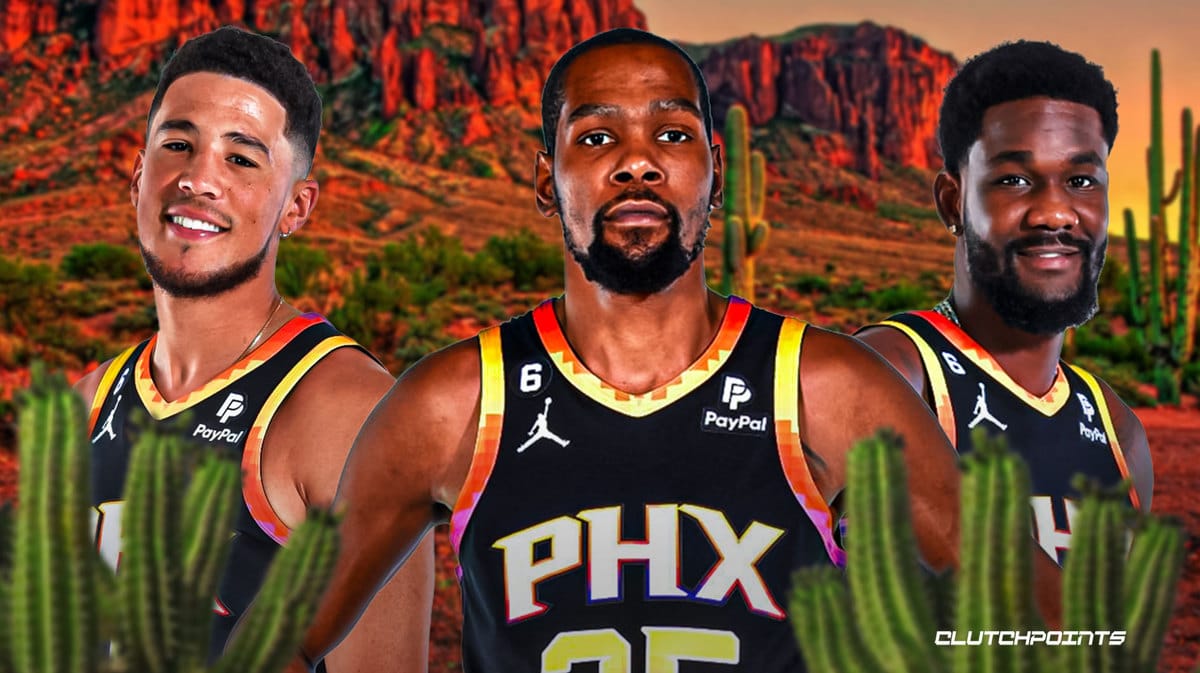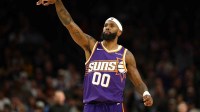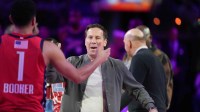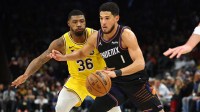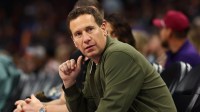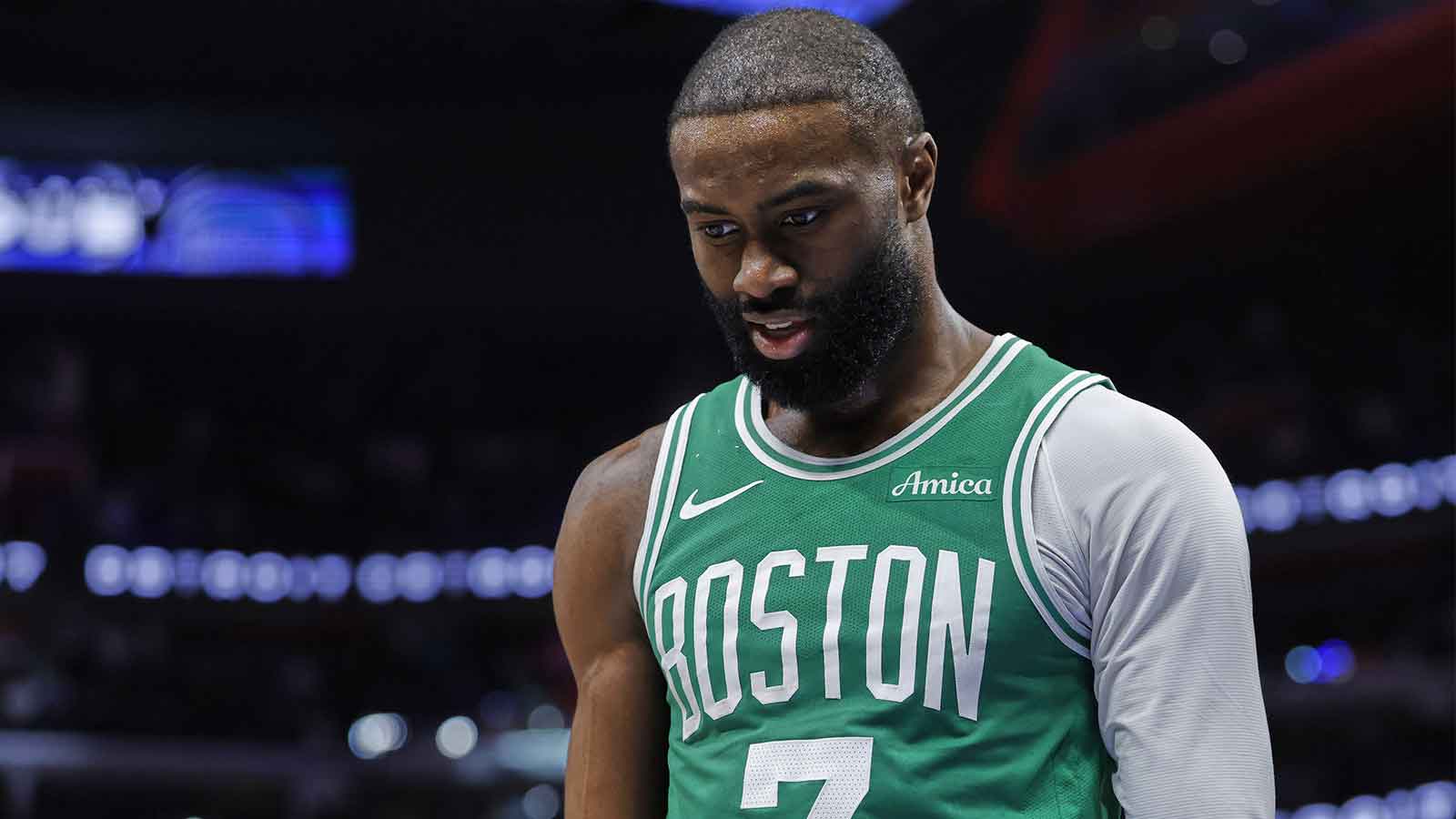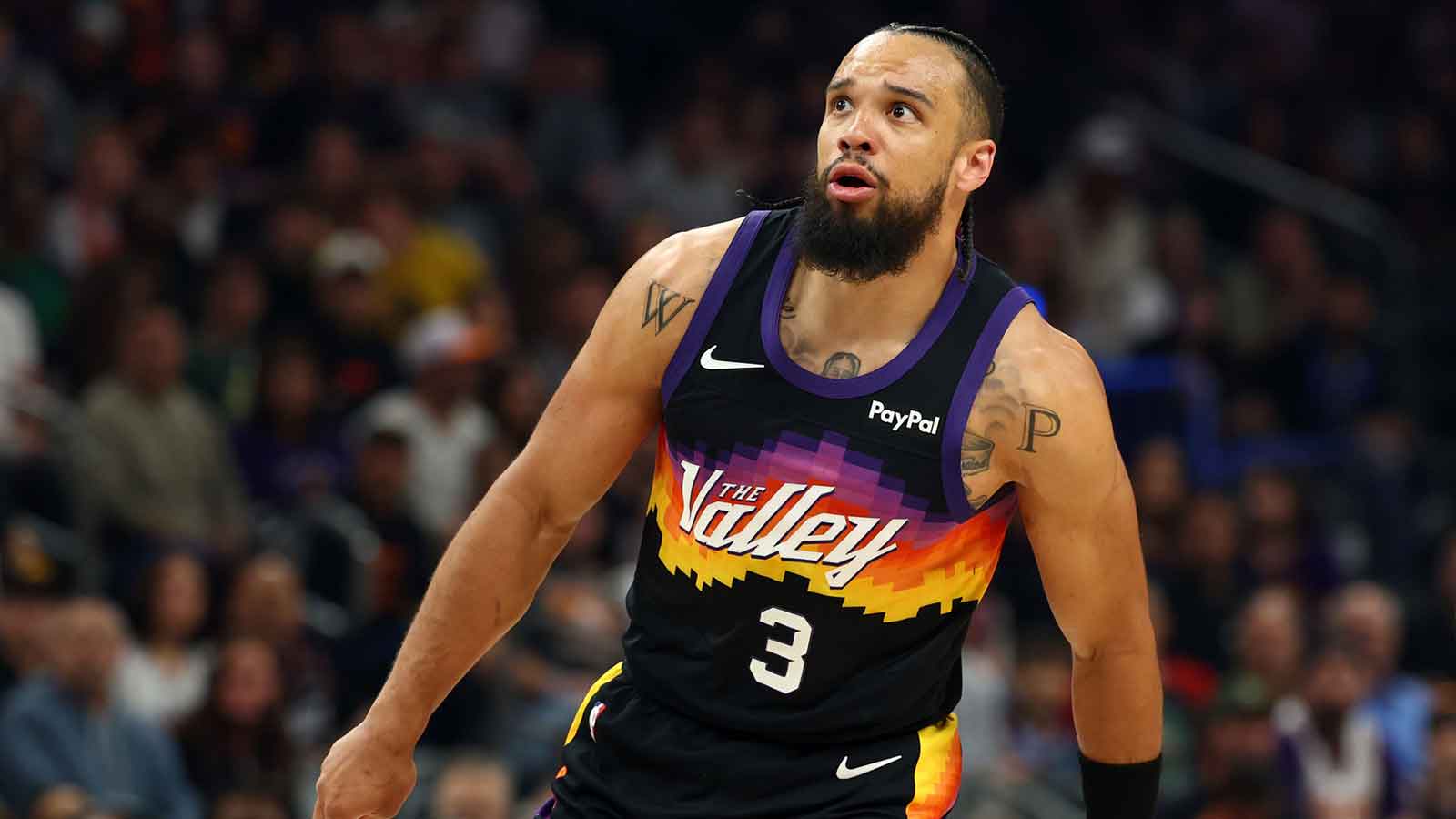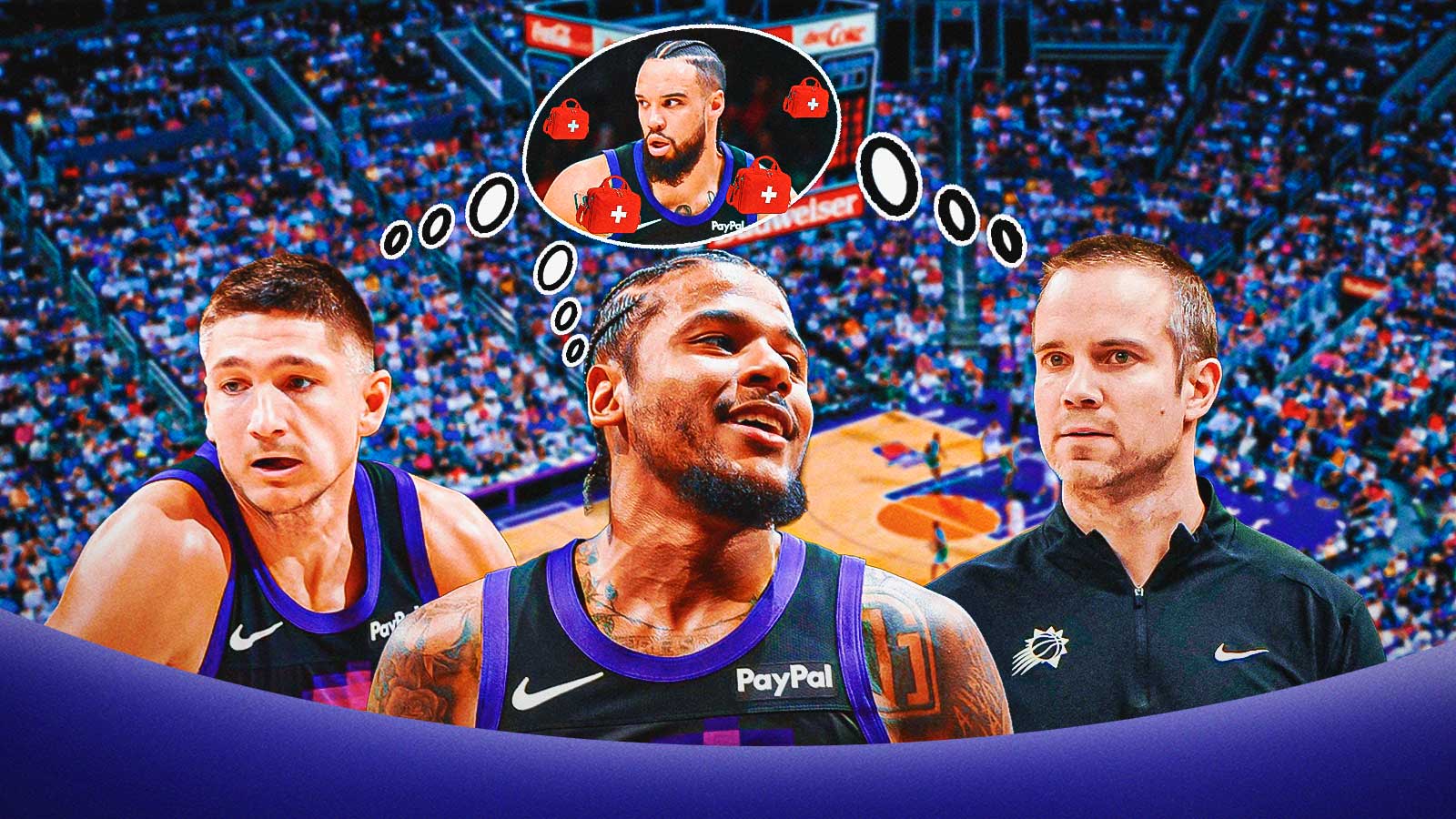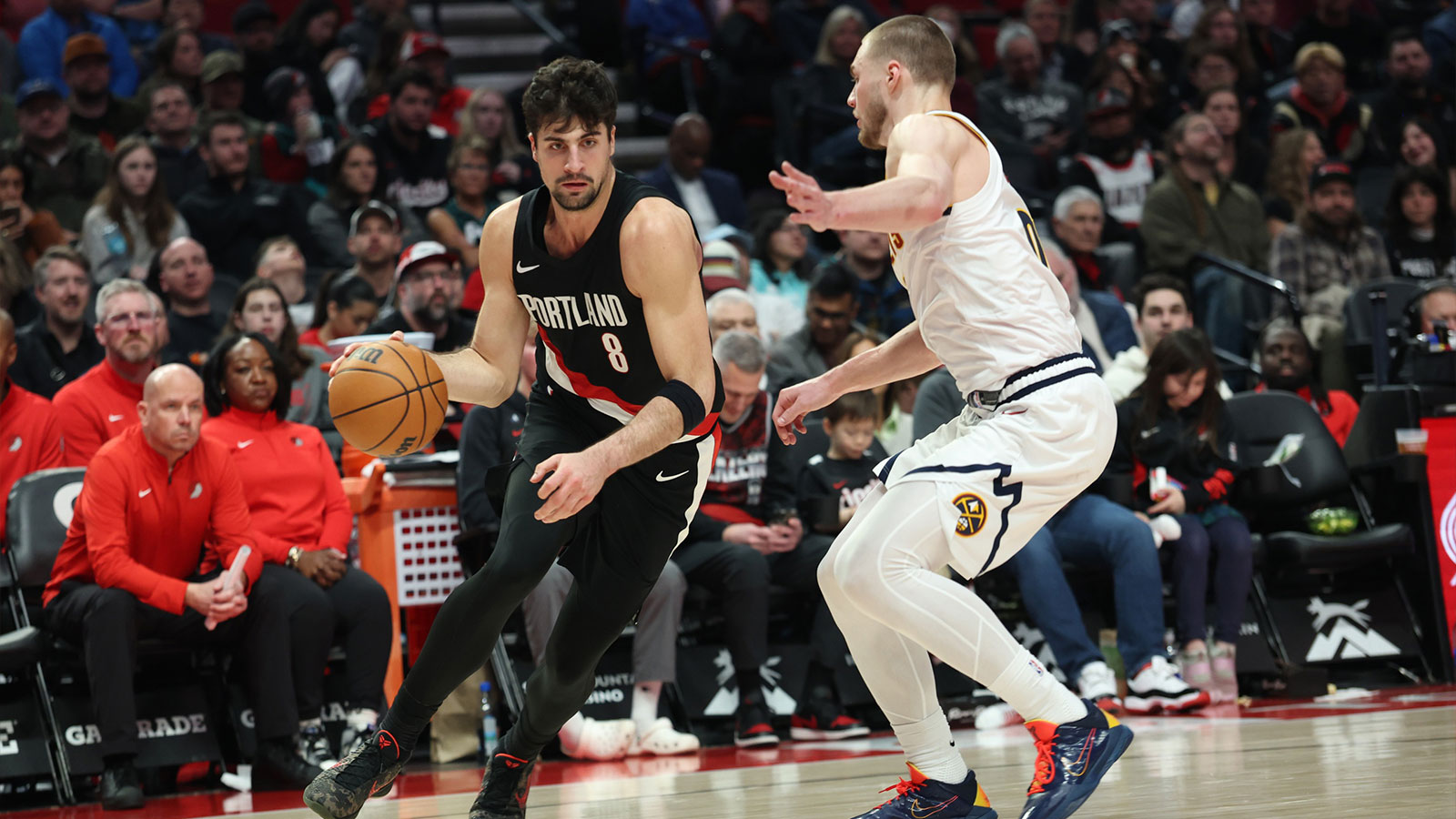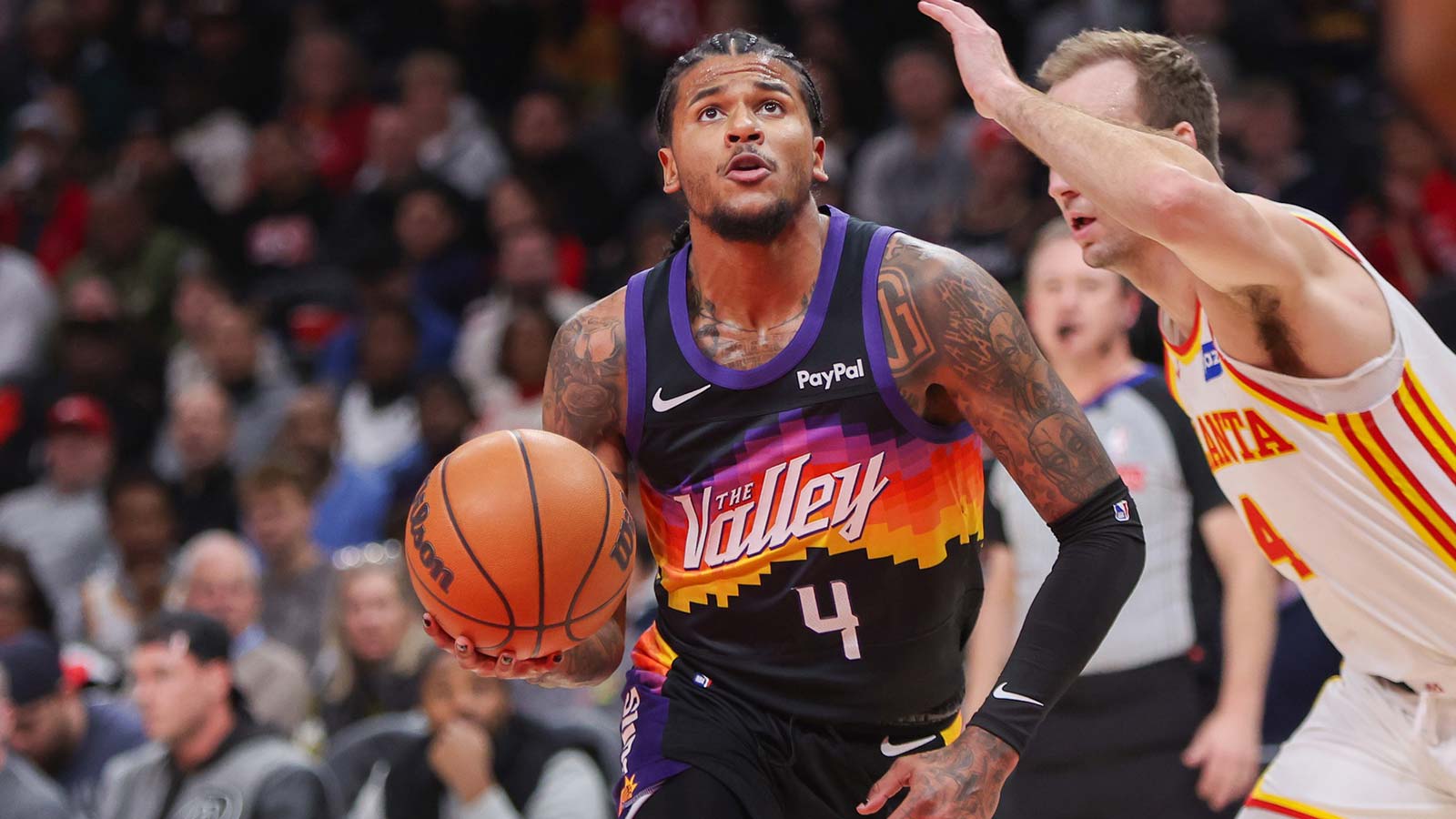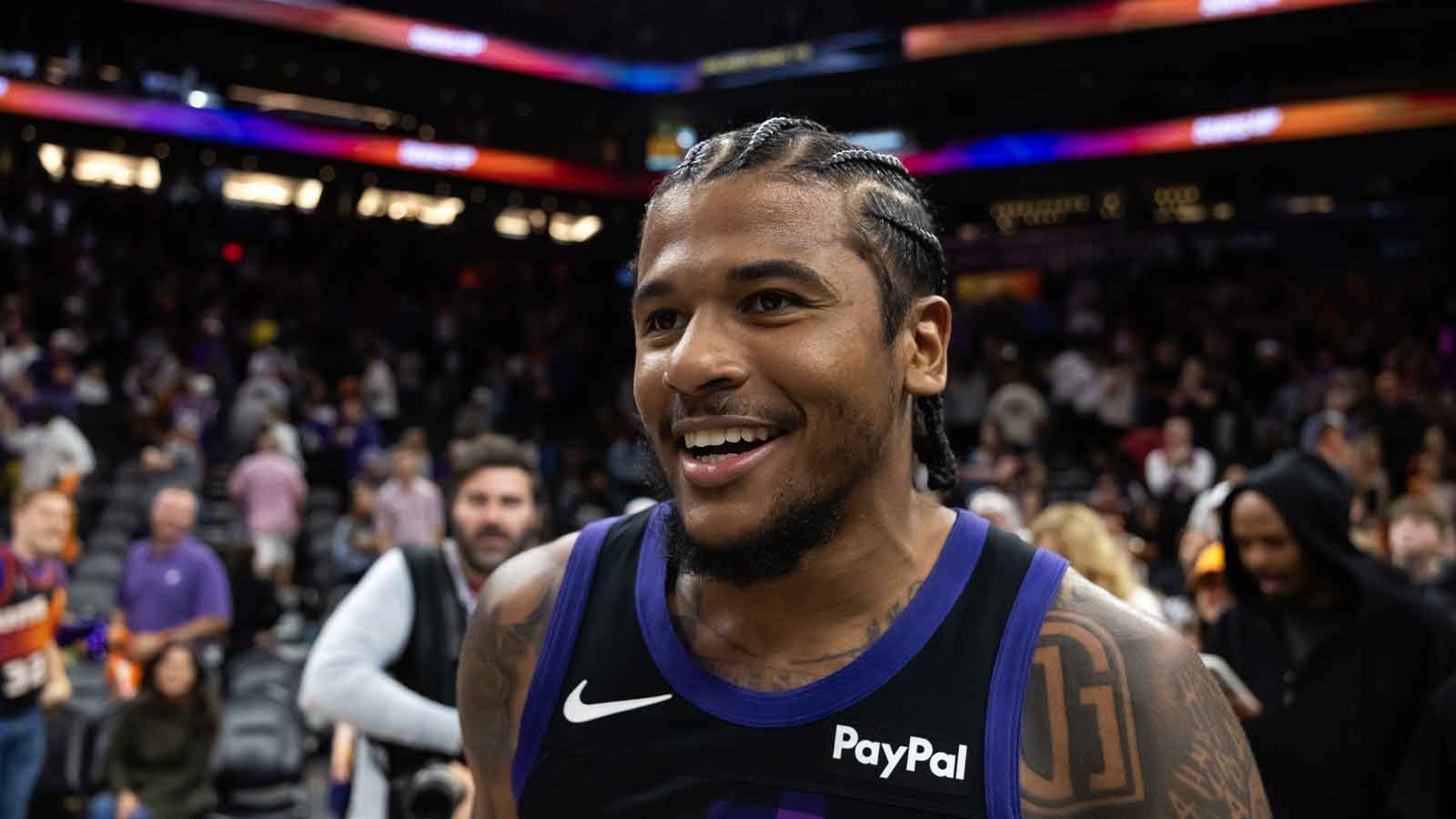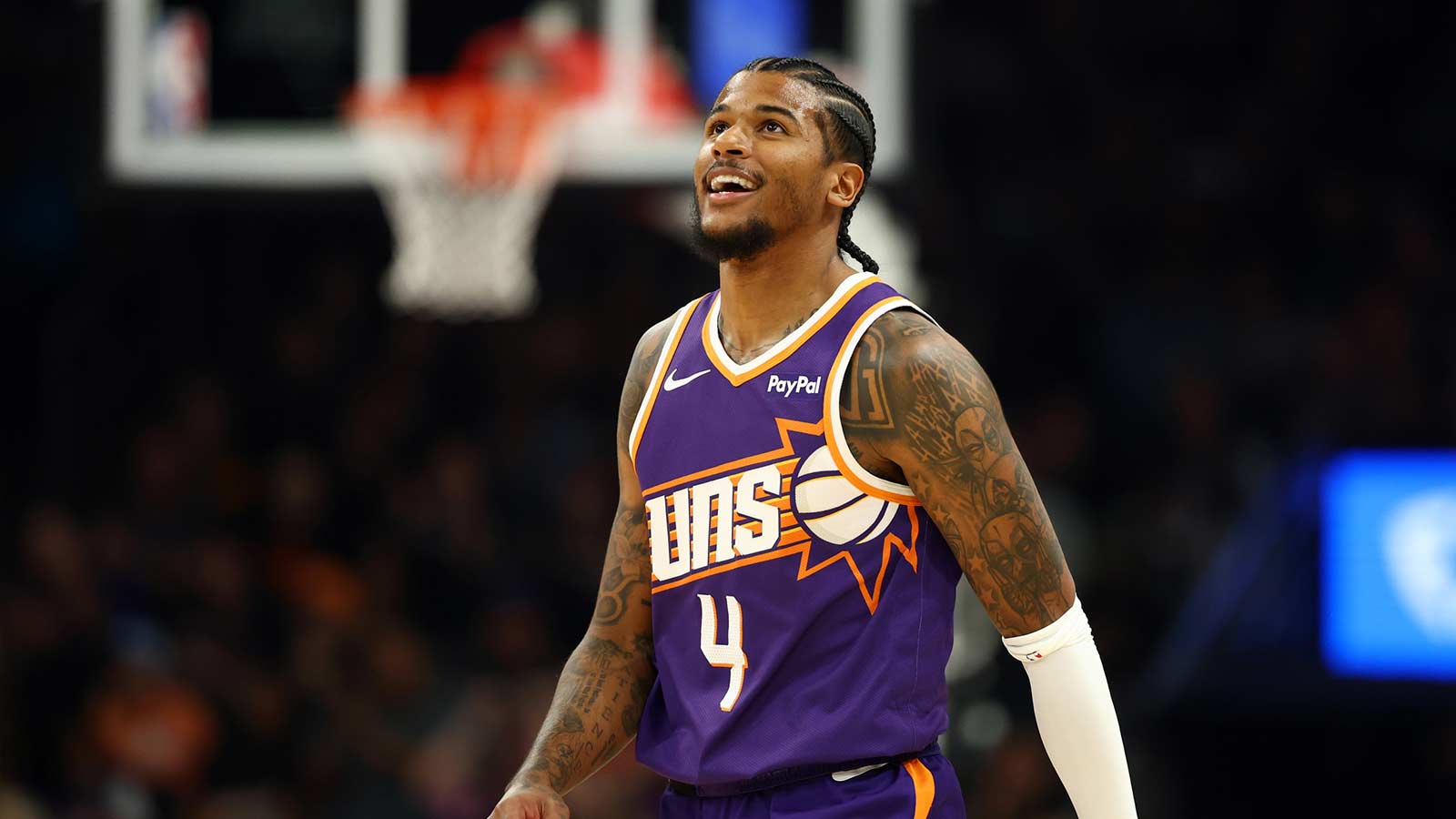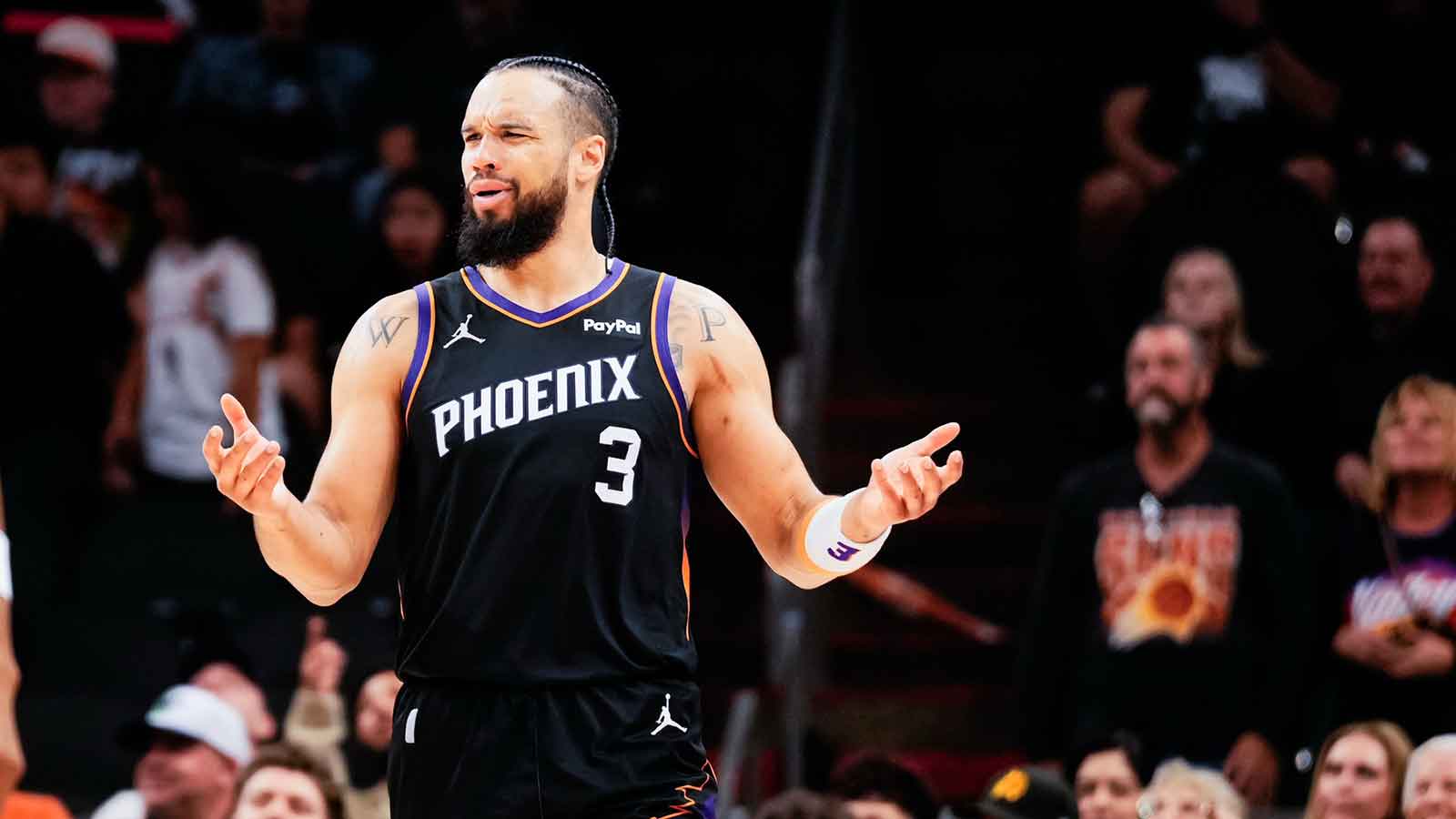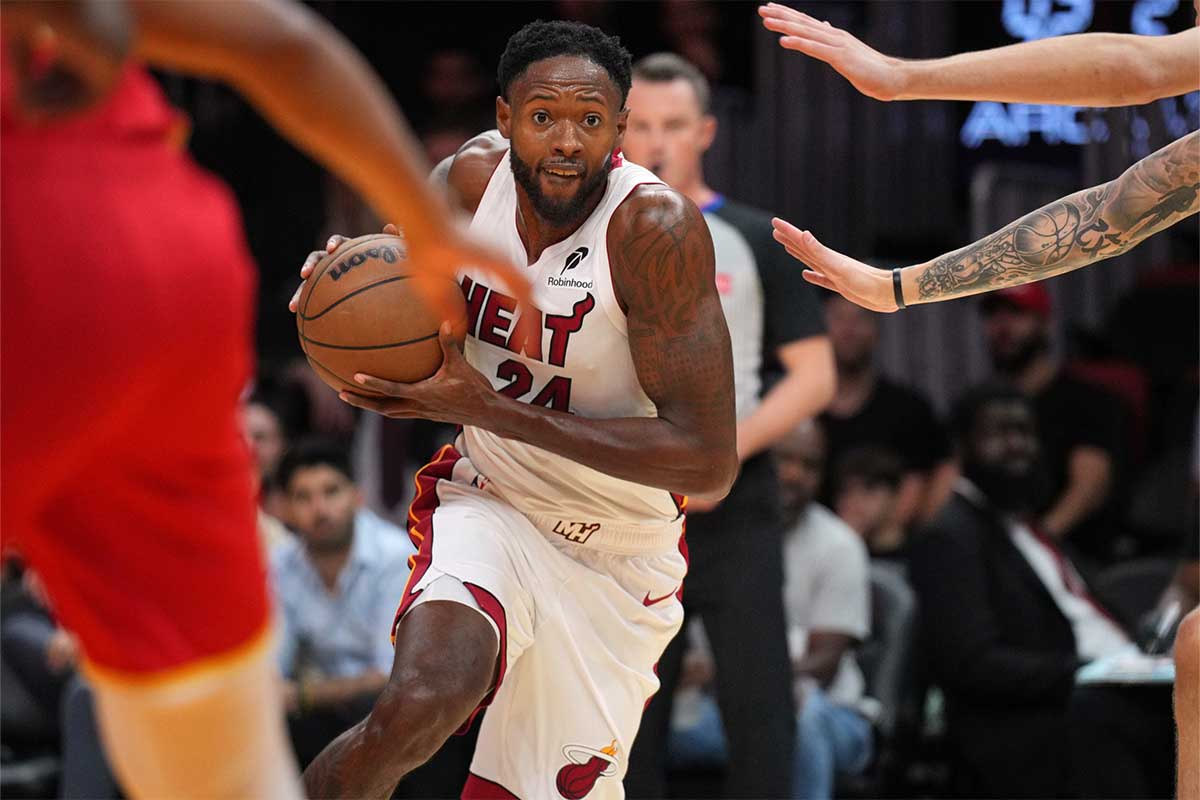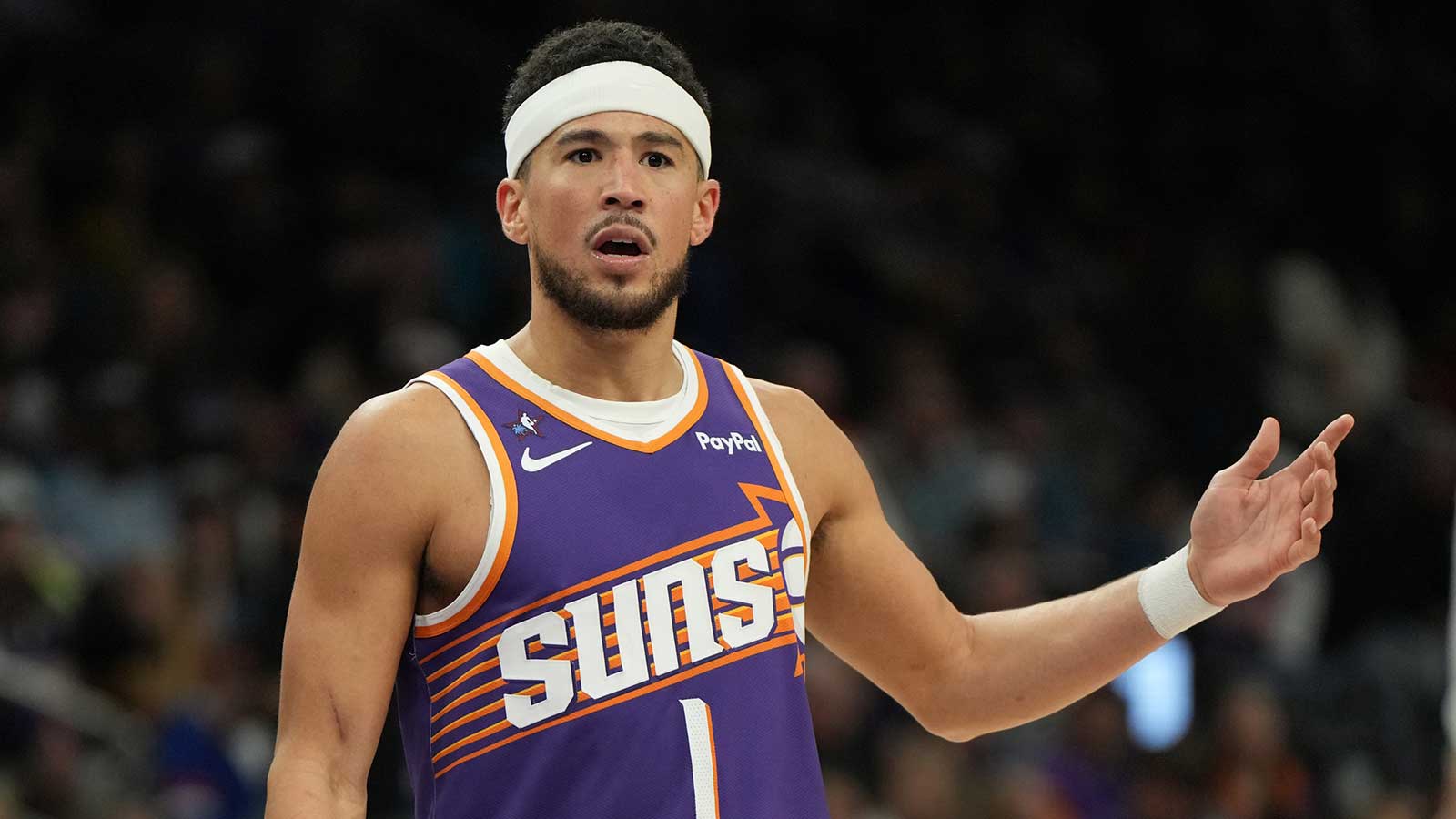When you picture a basketball game, what do you see? Teamwork? Individual brilliance? A jumper? A pass? In their looming second round series in the NBA Playoffs, the Denver Nuggets and Phoenix Suns aren't just competing for a spot in the Western Conference Finals, they represent two fundamentally different ways of thinking about and playing basketball. The Nuggets, built around two-time MVP Nikola Jokic, are a testament to the virtues of continuity with a core that's been together in some configuration since 2017. Conversely, the Suns are a microwaved superteam, cashing in on their continuity to acquire mercenary superstar Kevin Durant in February. To this point, Durant hasn't even played 15 games alongside both of his co-stars Devin Booker and Chris Paul. But even in this abbreviated sample size, the Suns have proven to have the bones of a championship team. Here are the two biggest reasons why the Suns will beat the Nuggets.
Shot-Making
The Suns are an elite team because they make shots. In facts, it's pretty much the only reason they're an elite team. At 45-37, the Suns were a mostly unremarkable team until they added Kevin Durant at the trade deadline; the formula that helped them win the West in 2021 and win 64 games in 2022 hadn't quite gone stale, but it was clear that the team lacked a certain oomph. Chris Paul's gradual decline sapped some of the offense's efficiency around the margins; Devin Booker's injuries rendered them without a second capable dribbler; Deandre Ayton's crippling video game addiction prevented him from leveling up into the star they needed him to be.
By trading for Kevin Durant, the Suns revitalized the whole operation. Everyone's roles right-sized around Durant's superstar talents—Booker fulfilled his destiny as the NBA's most devastating secondary scorer; Chris Paul and Ayton mercifully had their offensive loads lightened. Thanks to Durant and Booker (and to a lesser extent Paul), defenses have no recourse to stop the Suns' attack. Defense is a math problem—NBA offenses are too good and too sophisticated to stop, so the key is allowing the least bad option. The Suns present no bad options; the math is always in their favor. Whereas defenses traditionally try to coax scorers into difficult mid-range jumpers off the dribble, Durant and Booker are more than happy to oblige; Booker shoots a preposterous 52 percent in the mid-range and Durant shoots an even preposterous-er 59 percent, according to Cleaning the Glass.
Once Kawhi Leonard got hurt in the first round of the NBA Playoffs, the Clippers still managed to hang around against the Suns by getting weird, breaking out novel lineup configurations and janky defensive schemes to try to throw the Suns off-guard. Even if the scores remained fairly close through all five games, the Suns never seemed too bothered, buoyed by Devin Booker's 37.2 points per game.
Unlike the Clippers, though, the Nuggets defense doesn't have the luxury of options. Their entire defense is oriented around keeping Jokic comfortable. Their pick and roll defense is a precarious, Goldilocks endeavor—if Jokic drops back too deep, he might as well be chaperoning the ball-handler to the basket; if he ventures out too aggressively, he's easily dribbled around. In this sense, Jokic has to come to just the right level of the screen (and his teammates have to rotate in perfect concert behind him) in order to keep the defense afloat. While this approach has been successful in the regular season (the Nuggets won a conference-high 53 games for a reason), the Nuggets are vulnerable against the best teams. The Nuggets can only stop the Suns in one way (playing a militantly exacting hedge-and-recover scheme); the Suns can score on the Nuggets in a near infinite number of ways.
Deandre Ayton
For all his faults as a player, Deandre Ayton has a high floor simply because he's Deandre Ayton. As long as you know the rules of the sport, it's basically impossible to not be good when you're as big and athletic as Ayton. Taken with the first pick of the 2018 NBA Draft, Ayton has shown steady improvement, growing from an empty stats merchant to a guy who the Suns can rely on in the playoffs ; his game is one of refinement, not expansion. Rather than add a voluminous post game or three-point shot, Ayton has improved in a much more practical sense. He sets punishing screens and rebounds with aplomb; he reliably stands in the right spot and catches the ball when it's thrown to him; he knows his role.
Against the Nuggets, his role will be standing up to Jokic. In 2021, the Suns swept the Nuggets in the second round of the NBA playoffs and Ayton mostly held his own against Jokic, “holding” the MVP to 25 points, 13 rebounds and 5.8 assists per game on sub 50 percent shooting. To be sure, the circumstances of that series were drastically different (Jamal Murray and Michael Porter Jr were both out, Kevin Durant was still a Net), but the larger lesson remains the same. Even if it's impossible to shut Jokic down, the Nuggets become a lot more beatable if you can force Jokic to be merely extremely good rather than great.

